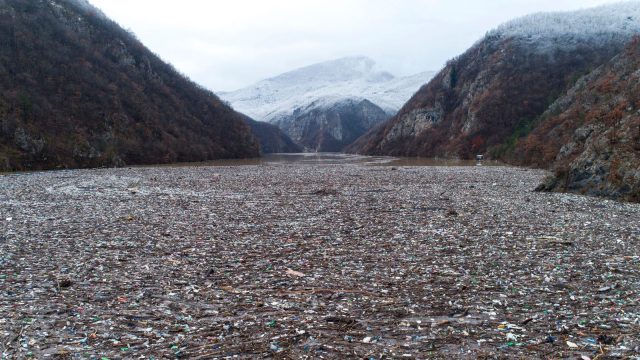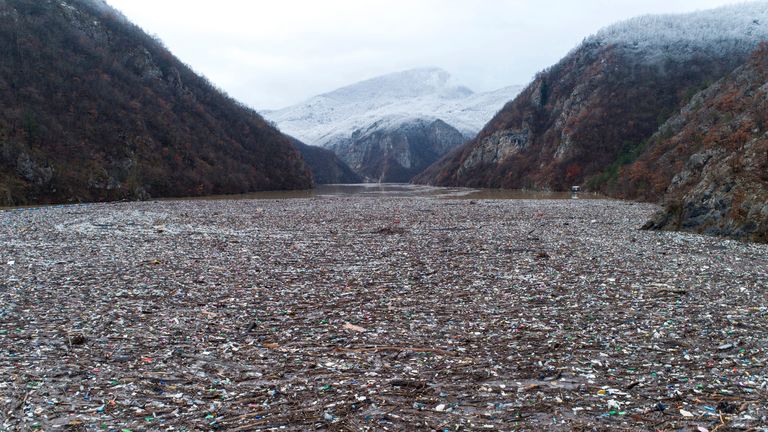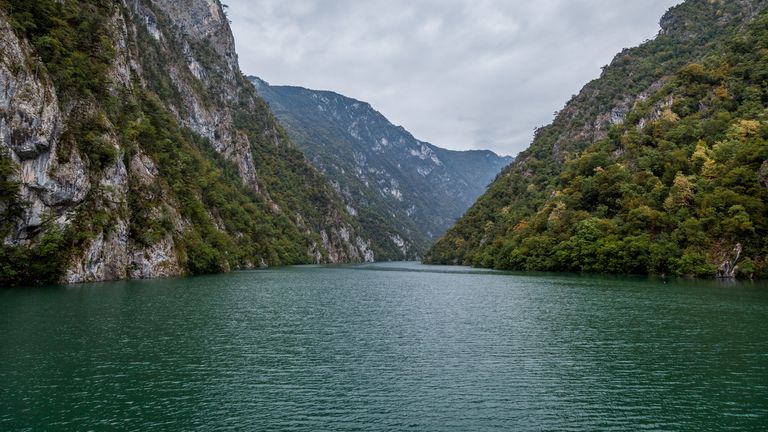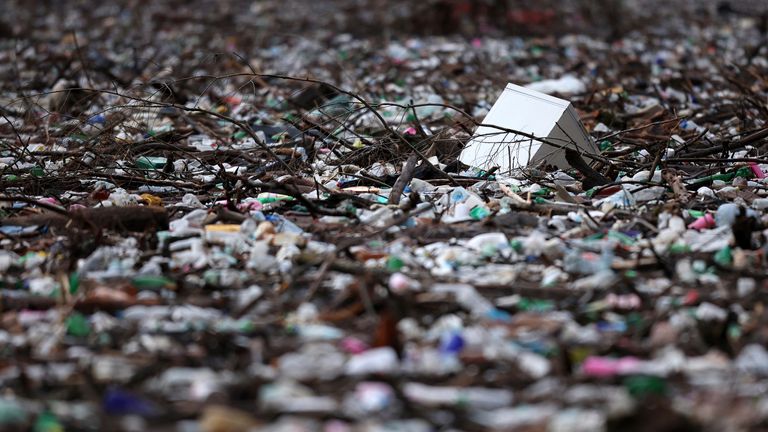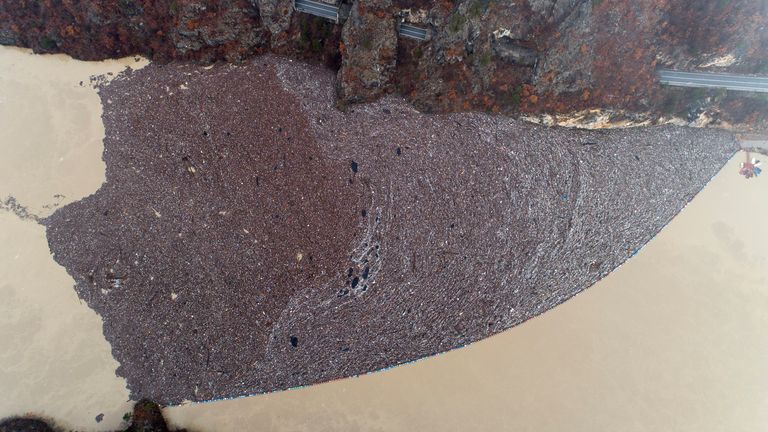Tonnes of waste – including plastic bottles, used tyres and fridge freezers – has turned a river known for its emerald colour and outstanding scenery into a floating rubbish dump.
The Drina River in Visegrad in eastern Bosnia-Herzegovina has been left crammed with rubbish following wet weather.
Waste from poorly regulated riverside landfills has accumulated behind a barrier in the river, leaving a vast carpet of pollution which stretches across the width of the water.
Rusty barrels, household appliances, driftwood and other rubbish picked up by the river from its tributaries have all been trapped by fencing installed by a Bosnian hydroelectric plant, a few kilometres upstream from its dam.
Environmental activists say the resulting blockage has turned the town into an unofficial regional waste site.
Heavy rain and unseasonably warm weather over the past week have caused many rivers and streams in Bosnia, Serbia and Montenegro to overflow, flooding the surrounding areas and forcing scores of people from their homes.
‘Huge inflow of garbage’
Temperatures dropped in many areas on Friday as rain turned into snow.
This is not the first time the area has become full of rubbish, with the same situation occurring in 2021, endangering the local ecosystem and people’s health.
Dejan Furtula, of the environmental group Eko Centar Visegrad, said: “We had a lot of rainfall and torrential floods in recent days and a huge inflow of water from [the Drina’s tributaries in] Montenegro which is now, fortunately, subsiding.
“Unfortunately, the huge inflow of garbage has not ceased.”
The Drina River – which has an intense green colour due to the limestone terrain and is often enjoyed by rafters – runs 346km (215 miles) from the mountains of north western Montenegro through Serbia and Bosnia.
Around 10,000 cubic meters (more than 353,000 cubic feet) of waste are estimated to have collected behind the barrier in recent days. The same amount was pulled in recent years from that area of the river.
Health hazard
Removing the waste could take up to six months and will end up as landfill.
Mr Furtula said the local waste site “does not even have sufficient capacity to handle [the city’s] municipal waste. The fires on the landfill site are always burning.”
He called the conditions there “not just a huge environmental and health hazard, but also a big embarrassment for all of us.”
Three-and-a-half years of brutal warfare in the 1990s, which left 100,000 dead, has left the Balkans lagging behind Europe both economically and environmentally.
Despite seeking membership in the European Union and adopting some of the EU’s laws and regulations, the countries of the region have made little progress in building effective, environmentally sound waste disposal systems.
In addition to river pollution, many countries in the western Balkans are facing extremely high level of air pollution, with some towns among the most polluted on the planet.

